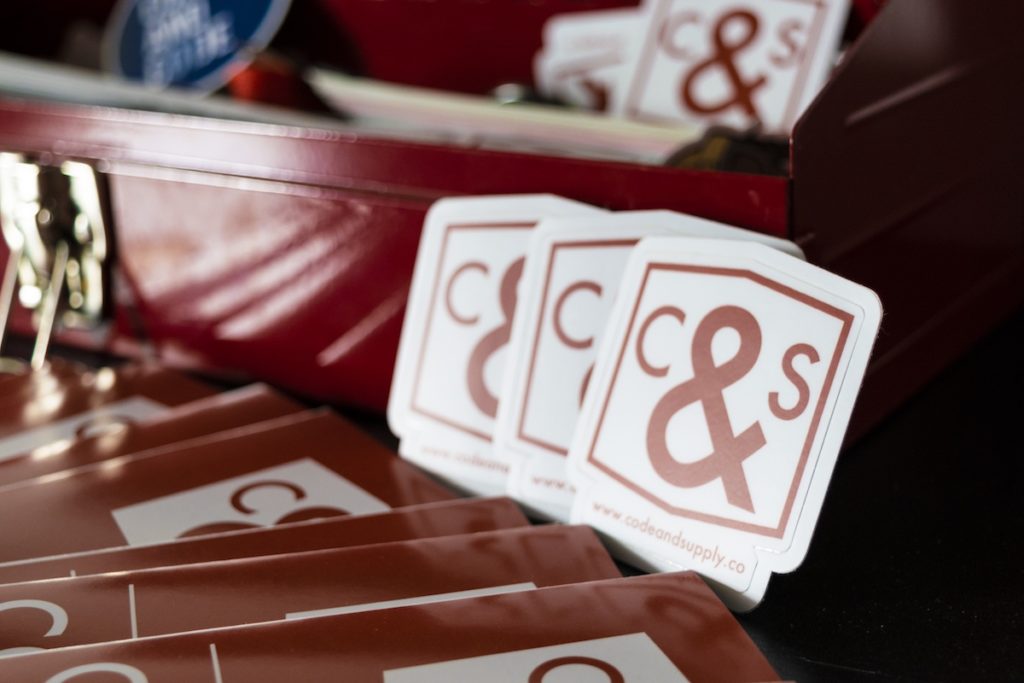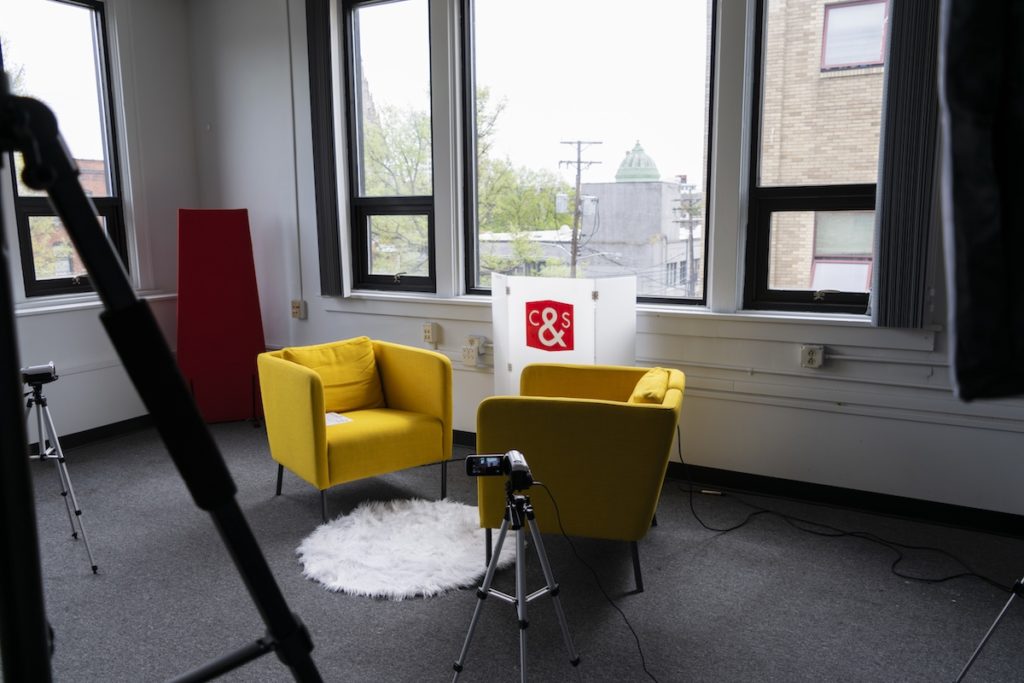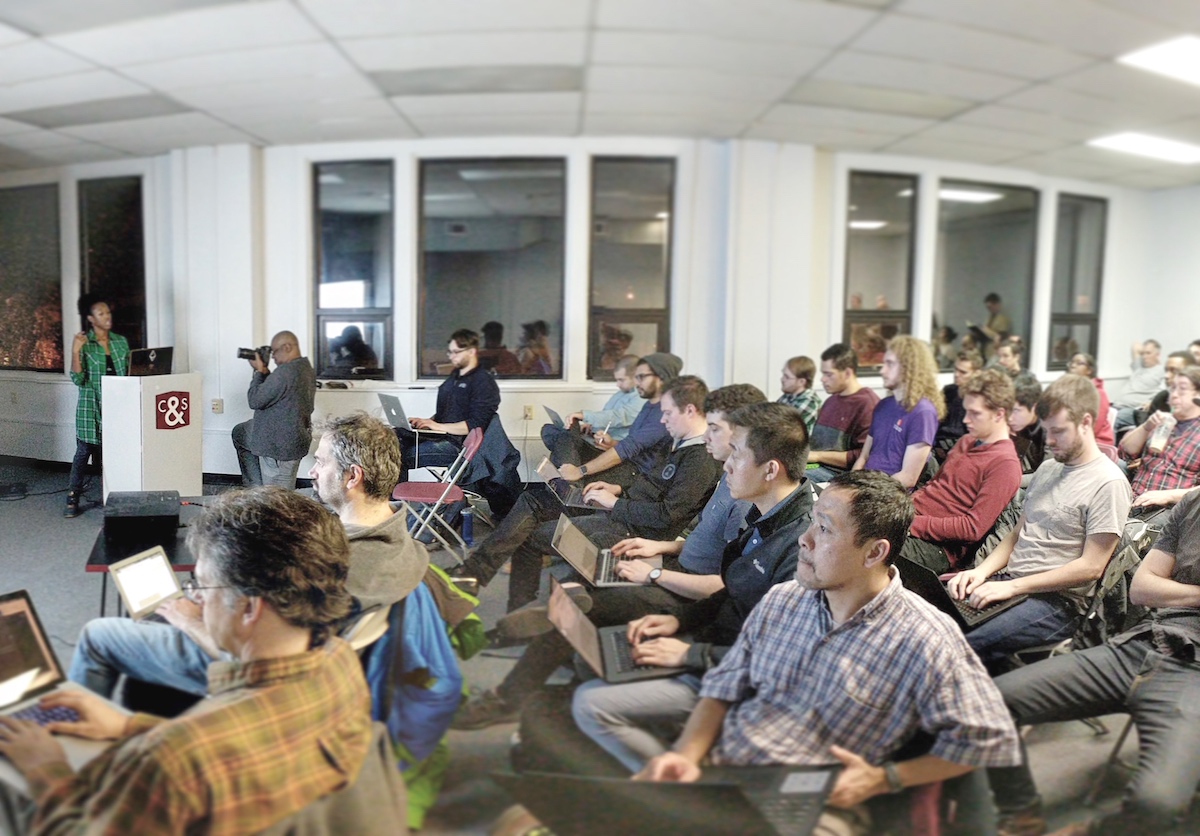“Getting people together wasn’t always the problem,” Reese said, “it was keeping things going.” Organizations that focused on one kind of software or programming language would lose members when people got new jobs, or when the language wasn’t useful to them anymore.
He started Code & Supply in 2014 as a kind of umbrella organization for the software community — beginner coders, experienced developers and all the people in between.
“We wanted people to feel like they were still part of the community even if they changed jobs or technologies,” said Reese, Code & Supply’s founding executive director. “We wanted to be welcoming to people of all skill levels, across languages and disciplines.”
The organization has since grown to become Pittsburgh’s largest software community. Its coworking space opened in East Liberty in January, and the organization has membership of more than 3,000 people, according to Reese. Hundreds of people come to Code & Supply monthly meetups, and the org has conducted three conferences and is planning more.

The goal with everything Code & Supply does, including a scholarship fund — more on that later — is different than the traditional economic development entity, Reese said: It’s not about connecting the companies in software, but rather about providing connections for the people doing the work.
The 2016 Abstractions conference drew software professionals from all over the world — many of them big names in the field, such as Larry Wall, who invented the Perl programming language; Richard Stallman, founder of the Free Software Foundation and creator of GNU; and Raffi Krikorian, formerly of Twitter and Uber — which was one of Reese’s goals when he first started hosting Code & Supply’s meetups.
“I wanted it to not just focus on one narrow thing, but have something for everyone, to make it so good that people felt like they had to come,” he said.
Software engineer Colin Dean, who has been with Code & Supply from the beginning as its biz developer, said the team has learned from the community as it’s grown.
“We’ve tried to do things that are more broadly appealing, not labeled ‘intro’ or ‘advanced,’ because often the discussion in a session is driven by whoever shows up to participate,” Dean said.
Code & Supply has another Abstractions slated for 2019, and last month conducted a smaller conference, Heartifacts, of about 100 people with the focus on mental health issues in tech.
Reese said that for him, the size of a conference isn’t the only benchmark of whether it was successful.
“I have thank-you letters from people who came to Abstractions that say ‘I got a new job and it changed my life forever because of attending the conference.’ Those are the best stories: getting two people to meet and go on to create something good,” he said. “I think the success comes through the stories of people who attended, and how their lives were changed in some way.”

At least one person who attended the first Abstractions gave back to Code & Supply in a very concrete way.
For that first conference, Dean estimated the organization spent about $25,000 on scholarships to bring people from three countries to the event. “A few were speakers, but many were just people who needed some help to attend,” he said.
An Abstractions attendee who got a new job with a large signing bonus as a result of a connection he made at the conference came to Dean and Reese with a proposal.
“He said to us, ‘If you start up a nonprofit to do at a Pittsburgh scale what you did for Abstractions, I’ll give you my signing bonus,’” Dean said. And so, nonprofit arm Code & Supply Scholarship Fund was born. (Dean declined to name the person, but said he’s someone who gives to a lot of philanthropic causes in the Pittsburgh area.)

And the scholarship fund isn’t just designed to bring people to Abstractions: “We fund travel, registration and incidentals for anyone coming to Pittsburgh for a software conference,” he said. That can include a speaker, an attendee, or someone else in need of a help. “We want to show people what’s awesome in Pittsburgh, [and] we think the software community is awesome in Pittsburgh.”
The scholarship also will offer assistance to Pittsburghers traveling to other cities for software conferences and who can help show off that awesomeness, Dean added.
And how to capitalize on the awesomeness locally?
Reese said he’d like to see better media coverage of Pittsburgh’s tech and developer community, rather than “the same stories about the same people doing the same things.” And he thinks the region’s tendency to look outward and make comparisons to places like Silicon Valley isn’t always useful.
“We should be asking, ‘How are we different from everywhere?’ and ‘How can we build on what’s already here?'” he said.
Dean, who was on the transition committee for Mayor Bill Peduto that crafted the city’s tech policy, said the administration has done a decent job so far with some of the goals set, and gave particular praise to Laura Meixell, assistant director of digital services in the City of Pittsburgh’s Department of Innovation and Performance, whom he called “a national treasure.”
But there’s more to be done, he added. Government entities in general are reluctant to adopt open-source tools, partly because they want to have control over them, and partly because they want there to be test cases.
Dean said he thinks there should be an ongoing conversation between local government and local professionals in the software industry: “Let’s get together the people who can talk through the real problems, and listen to how they think they can help.”







